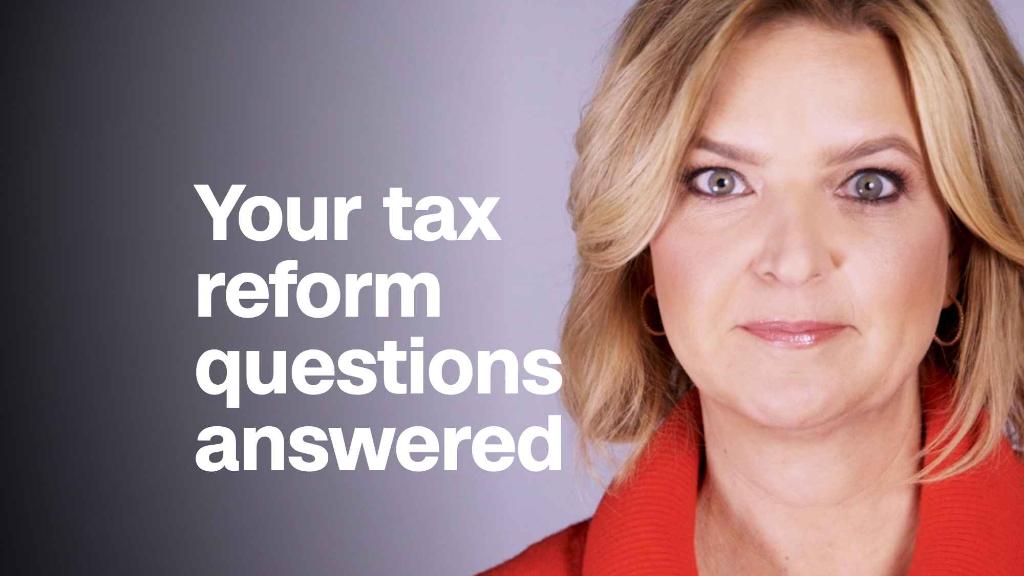
A review has found no improper political interference in a Treasury Department analysis of the Trump administration tax plan.
The Treasury Department's inspector general opened the review in November, after The New York Times pointed out that the department had not produced the analysis, despite promises from Treasury Secretary Steven Mnuchin.
Mnuchin had assured Americans that the tax plan would "pay for itself" and that more than 100 career staff were working on an analysis that would back him up.
The Treasury Department eventually released a single-page memo on the tax bill that was widely panned by tax policy experts, but it didn't come out in time for senators to review it before they voted on the plan.
Democrats questioned whether Mnuchin had "misled the public about the extent of the Treasury Department's analysis" and whether there was political interference.
Related: Treasury analysis asserts GOP tax plan would be paid for
In a November 30 letter to the inspector general, Senator Elizabeth Warren, a Massachusetts Democrat, said either Treasury "used extensive taxpayer funds to conduct economic analyses that it refuses to release" or Mnuchin had "grossly misled the public about the extent of the Treasury Department's analysis."
Ron Wyden of Oregon, the ranking Democrat on the Senate Finance Committee, also requested a probe into the matter.
But the inspector general's review said those fears were unfounded.
"It is unclear whether the Department's involvement in the tax legislating process in 2017 has been any more or less 'political' than it has been in past years," Rich Delmar, the counsel to the inspector general, wrote in a report.
"I do not see a basis to conclude that the process employed by Treasury this past year was contrary to law, an abuse of authority or otherwise improper."
Staff interviewed by Delmar refuted claims they had been shut out of the tax reform process and were not fully engaged. They also said they did the analysis Mnuchin was talking about publicly.
Related: Top Democrat seeks broader inquiry into Treasury's missing tax analysis
"We have played a major role throughout the process," James Mackie, the director of the Office of Tax Analysis, said, according to the report.
Delmar wrote that the office did not release its analysis or provide it to Congress because it "had gotten the impression" lawmakers were "less interested in getting OTA's input" as the bill was being drafted.
Thomas West, tax legislative counsel, said there had been a "significant amount of dialogue between Treasury and staffers on the relevant congressional committees" throughout the year-long process.
Treasury's one-page memo, released in December, concluded that the tax bill, combined with the rest of the White House's economic agenda, would not only generate enough revenue to pay for the tax cuts, but generate an additional $300 billion over a decade.
Related: America's tax change is costing foreign companies billions
Treasury took its analysis one step further, projecting annual economic growth of 2.9%. That projection assumes Trump's whole economic agenda is enacted, including tax, regulatory and welfare reform and infrastructure spending.
The report said that Mackie "declined to give a substantive answer" about how likely that growth rate was, but the report pointed out that it's "rare."
The report noted that a lot of attention has been paid to the administration's economic projections over the next decade -- and, notably, many have cast doubt on its conclusion.
In modeling the Senate tax plan, the Treasury's tax policy office came to a similar conclusion as the nonpartisan Joint Committee on Taxation.
The JCT found that the bill would add $1.5 trillion to the deficit over a decade.
After accounting for the potential growth effects of the bill's measures, however, the JCT found it might generate $408 billion in new revenue, reducing the bill's cost to just over $1 trillion.
When asked whether the agency's tax policy office agreed with the JCT's calculation, Mackie said there was no official position, but estimates "are widely considered to be reasonable."


